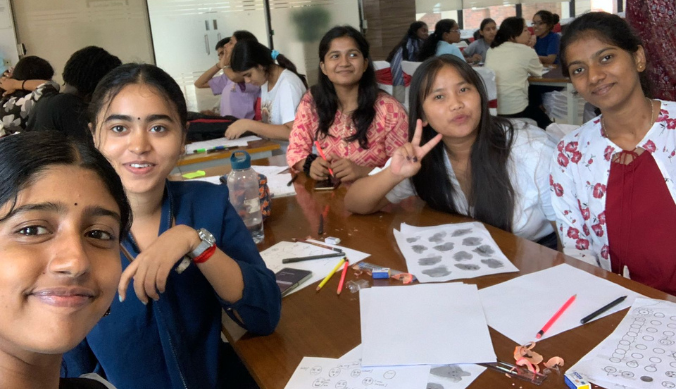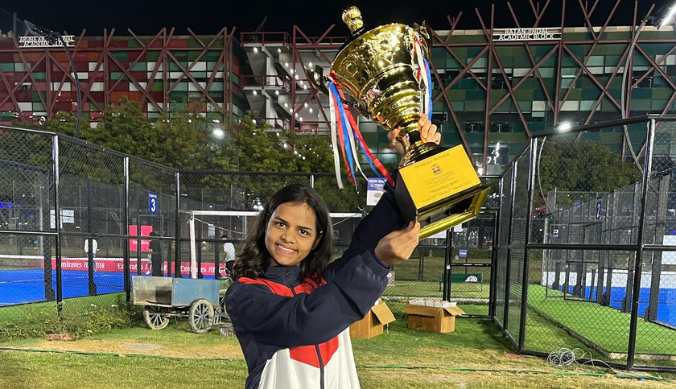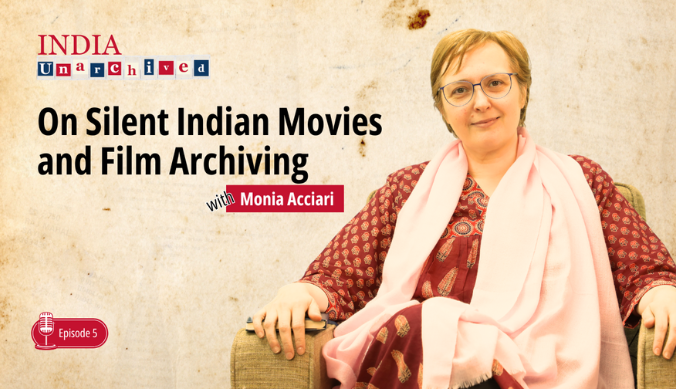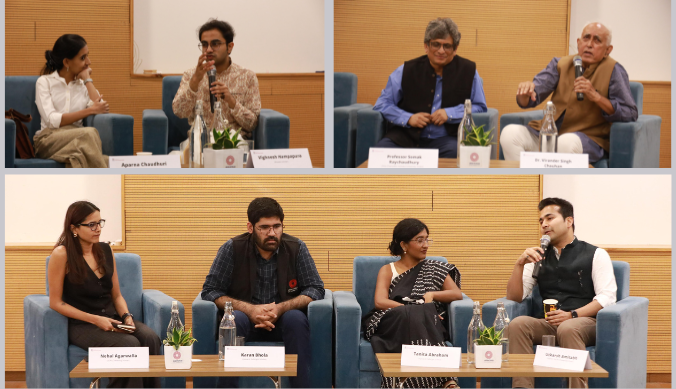Empowering Tomorrow: Rahul’s Journey in Aging Research
YIF Alumnus Rahul Kodihalli Venkatesh (YIF ‘20) receives the UK Research and Innovation (UKRI) PhD Studentship (2024) to pursue aging research from Northumbria University, United Kingdom.
Born into a family where resources were scarce, Rahul’s parents instilled in him a love for learning that knew no bounds. His mother’s ingenious solution to his thirst for stories – creating a small book from torn-out newspaper articles-sparked a lifelong passion for knowledge. Despite the limitations in his village, Rahul’s passion for education drove him to excel in his academics. Today, Rahul’s journey has taken him to the forefront of scientific research, with accolades and recognition that speak to his tireless efforts. Rahul has received prestigious awards and scholarships, including a Gold Medal from the Prime Minister of India for being the University Topper at the National Forensic Sciences University, Gandhinagar, Gujarat (2017), International Neuropsychology Fellowship Research Grant from British Neuropsychology Society (2019), Commonwealth Scholarship (2020) for his Master’s in Dementia Studies, South Asian Implementation Science Fellowship (2021) and has been recently awarded PhD Studentship by UK Research and Innovation (2024), the national funding agency investing in Science and Research, to pursue his PhD from the Northumbria University, United Kingdom. Yet, what defines him is his commitment to make a meaningful impact in the lives of others. His research focuses on developing innovative tools to improve healthy aging in resource-constrained settings.
We recently spoke to Rahul about his humble beginnings, academic journey, research and aspirations. Here is what he had to share:
Can you tell us a bit about your background?
I hail from Kodihalli, a small village about 70 kms from Bengaluru in Karnataka. Growing up, my father ran a provisional store, and my mother managed our home while helping him. Although we had limited means, I felt fortunate compared to many classmates who relied on school mid-day meals. From a young age, I had a passion for learning, and my mother encouraged it by creating a makeshift book from torn-out children’s stories in old newspapers. I treasured those stories, reading them countless times.
My life took a significant turn when my mother convinced my father to enroll me in a private English medium school for high school. This new environment was filled with competition and opportunities, showing me that to achieve my dreams, I would have to move to bigger cities. I pursued my undergraduate studies in Bengaluru, followed by a master’s degree in Gandhinagar, Gujarat, and the Young India Fellowship, Ashoka University in the Delhi NCR region. Each step, from reading makeshift books to studying in different cities, has shaped who I am today. My passion for learning and my family’s support have been my driving forces.
What inspired you to pursue a career in cognitive psychology/ neuropsychiatry, specifically focusing on dementia?
As a child in my 5th grade, I was fascinated by actor Vishnuvardhan’s portrayal of a psychiatrist in the Kannada movie ‘Apthamitra’ (the Hindi remake is Bhool Bhulaiya). At 11, I decided to become a psychiatrist, unaware of the details. I used to be excited about the very concept of the brain, mind, and my interest in psychology grew as I watched DD-Chandana (a regional channel of DD National) phone-in programs and well-being programs about mental health, and read feature articles on the topic. Back then, mental health wasn’t a popular or mainstream topic, so rarely did anyone talk about stress or well-being. In high school, I read B.V Pattabhirao’s books on NLP and deception, which further solidified my desire to pursue Psychology. I was convinced I would become a psychologist (I didn’t know psychologists and psychiatrists were two different things then). I used to write the same in slam books or when teachers asked what I wanted to become when I grew up. I think I am one of those few people who actually became what they had written in slam books in high school.
I pursued science in 12th, but was least aware and completely clueless about how to become a psychologist after this. After completing high school, I visited the National Institute of Mental Health and Neurosciences (NIMHANS) with a friend, seeking guidance on becoming a psychologist. NIMHANS was extremely popular in my village because mental illness carried huge stigma and shame back then. But that was the only place I knew that was connected with Psychology. A chance encounter with a girl who counseled us set me on the right path. She asked why we were there and what we were looking for, and she gave us a proper roadmap about Psychology: what it means, how to pursue it, and what all I have to study. She said I would have to study till a PhD if I wanted to gain expertise in this subject. She also told me about a couple of UG colleges that I could apply to. That conversation left me with a strong impression that a PhD was what I had to pursue to complete this journey. I majored in Psychology from Surana College, took up internships in various places, such as small clinics, rehab centers, and nursing homes. I soon realised that I was not the right fit for therapeutic or clinical work. I was comfortable with research. I had difficulty comprehending various psychological theories in an objective sense, and many I couldn’t even relate to. Then came abnormal psychology and the biological approach. Myers in his book opens the topic with this statement: “Everything psychological is simultaneously biological.” I was super fascinated by this line. I had also witnessed how psychologists and psychiatrists approach mental health concerns differently, where one ignores biological aspects and the other the social and environmental aspects. I felt that if we need to address any mental health concerns, we need a holistic approach, and this traditional reductionist approach would be counterproductive. That’s how I found my true calling in academic research, particularly in Neuropsychology.
The holistic approach of Neuropsychology resonated with me, and I pursued my master’s from the National Forensic Sciences University. Later, I joined the Indian Institute of Science (IISC) for a project under the Centre for Brain Research to develop a “Cognitive Assessment Battery” — a comprehensive tool to assess cognition and detect early signs of cognitive decline. This was a community project, and I was stationed in a small village where I administered our newly developed computerised assessment to more than 1,200 older adults aged 45 years and above, spending over 2,500 hours gaining valuable insights into aging, culture, and brain health. IISC gave me the opportunity to interact with many esteemed scientists and academicians in the field of aging, through which I gained a clear understanding of the current status, needs, gaps, and future possibilities around aging in India. I became well aware of the ground reality and advancements happening at leading labs in this field.
How has the YIF influenced your career path? Can you tell us about your YIF experience?
My supervisor at IISC encouraged me to pursue a PhD from International labs, but I felt unprepared. With no publications, weak writing and analytical skills, and limited knowledge beyond Neuropsychology and aging, I doubted my candidacy. It was my supervisor who suggested I join the Young India Fellowship (YIF) to upskill and network. Initially, I saw the fellowship as a means to improve my skills, but it turned out to be a life-changing experience.
YIF gave me a solid foundation in various subjects, boosting my confidence. It also freed me from fears of job insecurity and uncertainty, exposing me to diverse avenues for earning a living and skill-building opportunities. The YIF program’s multidisciplinary curriculum allowed me to explore fields beyond my specialisation. It broadened my horizons and deepened my understanding of how different disciplines connect. The emphasis on critical thinking and building analytical skills sharpened my problem-solving abilities, equipping me for the rigorous analysis required in PhD research.
Classroom discussions and assignments were more than just academic exercises; they were opportunities to learn how to articulate my ideas clearly and effectively, a skill that has become invaluable in both my academic and professional life. Collaborating with peers from various backgrounds wasn’t just enriching—it transformed my perspective and approach to larger issues, teaching me the power of diverse viewpoints. The supportive yet challenging environment of the YIF program was a catalyst for my growth. It boosted my self-confidence and empowered me to tackle complex challenges and present my ideas with conviction.
Post-YIF, my aspirations shifted from pursuing a PhD for its own sake to creating meaningful impact, as YIF removed the need for distant achievement. I spent two years refining my research interests, developing problem statements, and gaining experience in various methodologies. This journey helped me ace PhD interviews and approach problems from different perspectives. I began to see opportunities in places where no one else imagined and monetised my skills as a consultant for startups, guiding projects, and achieving a better work-life balance. My relationship with money changed, and I became more confident and self-assured. This transformation enabled me to present myself more effectively and eventually succeed in materialising my childhood dream.
How has your understanding of dementia changed over the years?
Spending over 2,500 hours interacting with older adults in a community setting at IISC was a grounding experience. It convinced me that I wanted to focus my career on aging research. In India, this is crucial as we have a large young and middle-aged population now, but in two decades, we will have one of the largest older adult populations in the world. Currently, India lacks sufficient policies and support systems for the elderly. Dementia is a significant issue that older adults will face, and I want to help India prepare for this challenge. However, I realised that my knowledge of quantitative methods alone was not enough.
Initially, during my academic journey in Psychology, I focused on specialisation through various internships during my undergraduate and postgraduate studies. This seemed essential until I attended YIF at Ashoka University, where the interdisciplinary environment taught me the value of a broader educational approach. This shift showed me how a well-rounded knowledge base could enhance my expertise in Psychology.
Inspired by this new understanding, I ventured beyond traditional Psychology roles post-YIF. I worked on a project with Sangath in Goa, where I learned to handle a multicentric systematic review and metasynthesis of extensive data. Then, at NIMHANS, I worked extensively on mental health stigma and dementia. I developed and tested interventions using qualitative methods, conducted awareness programs, and learned effective implementation strategies for rural India. At Education Initiatives, I developed educational content to help children learn Kannada. At Fieldscope, I worked on transcription and translation projects. These experiences broadened my skill set and understanding of how different disciplines intersect. These experiences over five years have helped me understand dementia from biological, psychological, and social/cultural perspectives.
I also revisited clinical psychology, joining clinics like Manoshanti and Maayra in Bangalore as a visiting consultant. This enriched my practical experience and deepened my psychological acumen. This eclectic professional journey led me to Witmer Health Technologies, where I now work as a cognitive psychologist. Here, I develop tools and interventions to enhance employees’ cognitive abilities and productivity. With a firm belief in the synergy of deep expertise and broad exposure, I feel well-equipped to make significant contributions in dementia research. This integrated approach, combining robust psychological knowledge with varied practical experiences, uniquely positions me to drive impact in cognitive health.
How has your work impacted Public Healthcare?
At NIMHANS, I’ve worked to improve how we view and treat mental health disorders at the community level. My efforts have helped create focused intervention programs and shaped public health policies, making mental health services more effective in primary healthcare settings. This work, in collaboration with the District Mental Health Programme, has positively impacted public health and well-being.
At IISc, my interdisciplinary research in cognitive neuroscience has deepened our understanding of how the brain influences behavior. We’ve developed a computerised assessment tool that’s easy to use, even for people with little or no education. This tool is widely used in aging projects at both NIMHANS and IISc.
Some of my publications are still in progress, but here are a couple that have already been published in Indian Journal of Social Psychiatry, Asian Journal of Psychiatry, The Journal of the Alzheimer’s Association.
- Accessing mental health care among people with schizophrenia: Data from an Indian rural psychiatric setting
- Behavioral Activation as an ‘active ingredient’ of interventions addressing depression and anxiety among young people: a systematic review and evidence synthesis
- Family Reintegration of a Homeless Person with Intellectual Developmental Disability (IDD): A Case Report
- Awareness and preferences of suicidal crisis support service options among college students in India: A cross-sectional study (under review)
- Cross-cultural adaptation of the Computerized Assessment of Information Processing battery (COGNITO) for an Indian longitudinal study on rural elderly (under review)
What innovations or advancements in dementia research are you most excited about?
Through my PhD, I want to lead research efforts aimed at transforming how India cares for its elderly population facing dementia. Despite global efforts and investments in dementia care and prevention, breakthroughs have been slow to come by. In the West, early opportunities to raise awareness and establish supportive policies were missed, resulting in stigma and inadequate support for those affected by dementia.
India, with its youthful demographic profile today, is on the brink of a demographic shift. In just a couple of decades, we will have more elderly citizens than anywhere else in the world. This presents a golden opportunity to proactively implement effective and sustainable strategies for preventing dementia, developing compassionate care policies, and training dedicated caregivers. My passion lies in creating a future where no one in India faces dementia alone or without dignity. I aspire to build a compassionate and supportive framework that empowers individuals affected by dementia and their families. I aim to pave the way for a society where elderly individuals can age gracefully and with the respect they deserve.
Rahul Kodihalli Venkatesh is a Neuropsychologist and Young India Fellow from the Class of 2020. He has over seven years of work experience in various community and laboratory research settings. His key interest lies in developing culture-free assessments for the early detection of cognitive decline and preventive digital interventions for the same. He has garnered the necessary quantitative and qualitative research skills to pursue his interest. He has worked on projects such as a longitudinal aging study and an anti-stigma intervention study. He has adapted a computerized neuropsychological battery and several attitude, knowledge, and behavioral scales for the Indian population. Currently, he is working towards the development of computerised, gamified interventions to enhance cognitive abilities based on neuroplasticity principles.
Study at Ashoka













